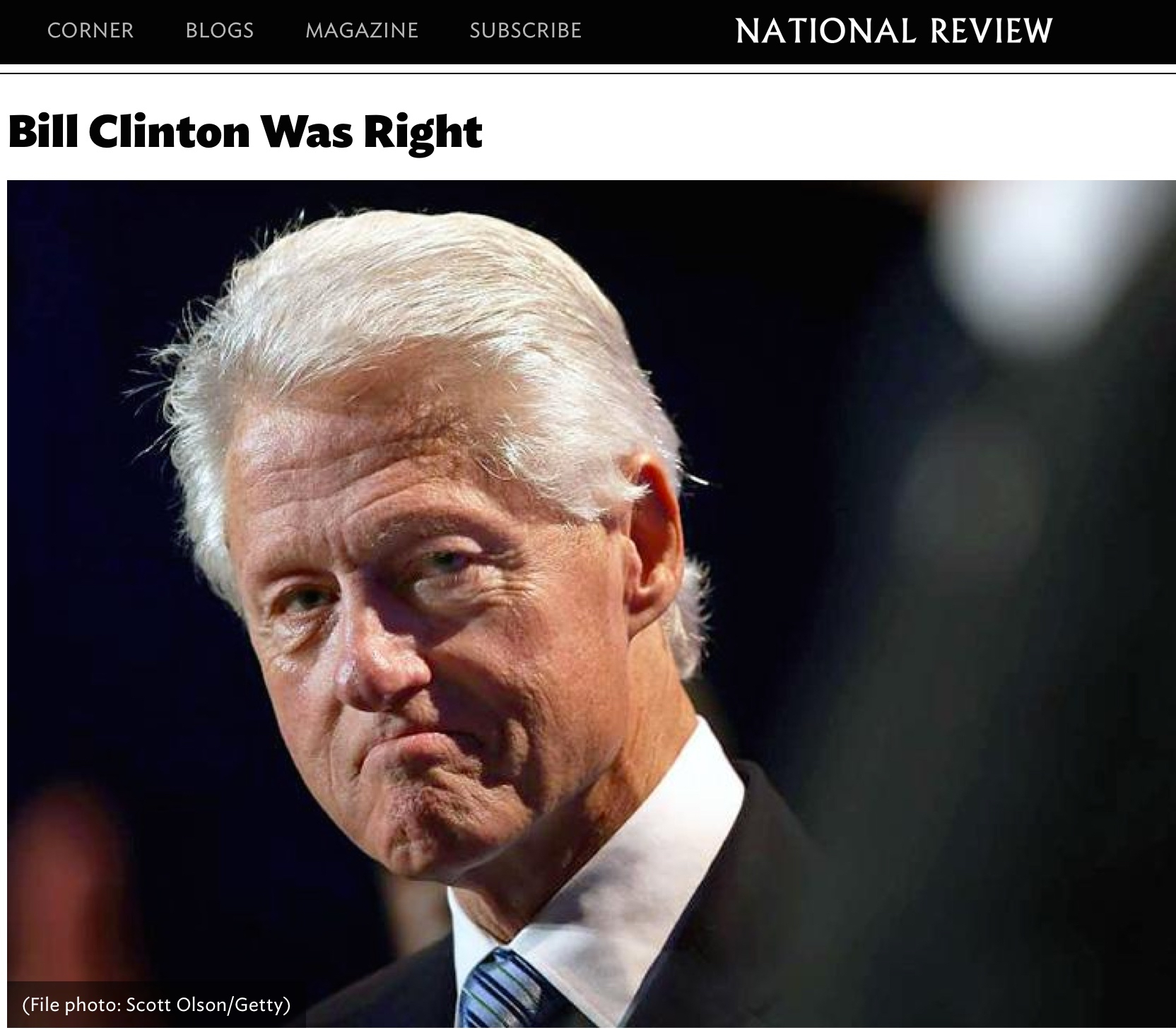 No, National Review editor Rich Lowry hasn’t gone wobbly. But he explains in his latest NR Online column why he believes the 42nd president was correct in one recent assessment.
No, National Review editor Rich Lowry hasn’t gone wobbly. But he explains in his latest NR Online column why he believes the 42nd president was correct in one recent assessment.
Bill Clinton trespassed against the cardinal rule of contemporary Democratic politics, which is that Thou Shalt Not Contradict Black Lives Matter Protesters.
Clinton’s lapse came at a Philadelphia rally last week. When demonstrators inveighed against the 1994 crime bill signed by Clinton, the former president gave much better than he got. He rebutted them in finger-wagging detail, repeatedly returning to the point that the crime bill sought to diminish the rampant criminality that was destroying black lives.
Clinton thought he was winning the argument, and by any reasonable standard he was — but, politically, he committed a multitude of sins.
He defended the old term “super predator” as an accurate description of gang leaders who prey on kids — not realizing that the phrase has been deemed dehumanizing (gang leaders are very sensitive to such microaggressions). Instead of denouncing the police as agents of systemic racism, he defended sending more of them into the streets. And by using the phrase “black lives” in the context of blacks killing other blacks, he signaled he doesn’t get that the only approved use of the slogan is as a bludgeon against the criminal-justice system.
In short, Clinton demonstrated a commonsensical, pre–Black Lives Matter understanding of criminal justice, and quickly had to backtrack. Presumably, he won’t be guilty of such an offense ever again. …
… There is no doubt that policing and prisons — as well as the waning of the crack epidemic — played a role in breaking the great crime wave of the 1960s. That we are safer creates the political opening to rethink our incarceration policies. Bill Clinton will now want to button his lip before saying such a thing, but it doesn’t make it any less true.


